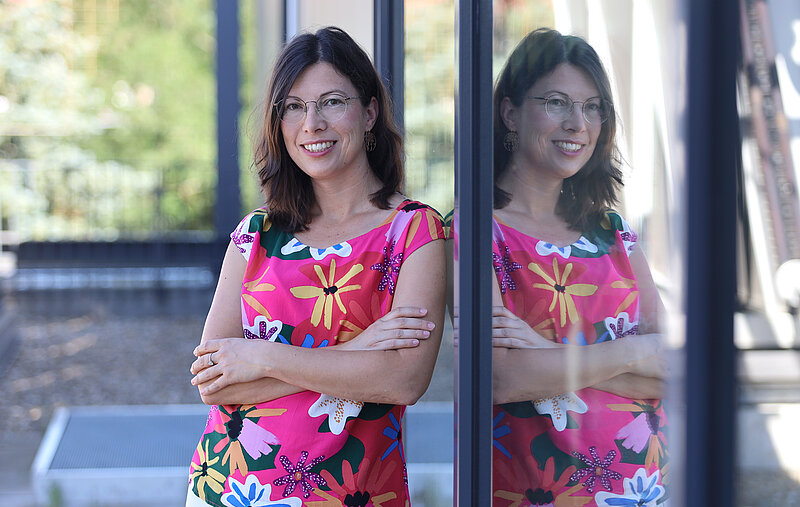The Schering Stiftung awards its inaugural Young Investigator Award 2025 to the biochemist and systems biologist Agnes Toth-Petroczy, a PI at the Cluster of Excellence Physics of Life, and research group leader at the Max Planck Institute of Molecular Cell Biology and Genetics (MPI-CBG) and Center for Systems Biology Dresden (CSBD). The internationally recognized young scientist receives the award for her pathbreaking work on the evolution, diversity, and function of proteins – especially those that are still largely unexplored.
Proteins are the central molecules of life. Although the human genome codes for approx. 20,000 different proteins, there are countless variants of them. How this diversity comes about, how proteins take on their specific functions in the body – and what happens when errors occur during protein production – is investigated by Agnes Toth-Petroczy, using a novel interdisciplinary approach.
A particular focus of her research is on intrinsically disordered proteins, proteins that lack a fixed structure and therefore are difficult to analyze in conventional biochemistry. They account for up to 30 percent of the human proteome, and their function has been little understood. Moreover, she studies phenotypic mutations – errors during protein production in the cell (transcription and translation errors), which are not part of the genome. This is a broad field that has been little researched so far, but is of great importance for understanding the evolution of proteins and their role in various disease patterns.
Her current projects also analyze the collective organization of proteins into biomolecular condensates, little droplets within the cell where proteins interact with other proteins. Her research shows how such “meeting points” emerge, how they have changed in the process of evolution, and what role erroneous proteins could play in this process.
By developing innovative computer-based models and tools, she enables systems-biological investigations into previously difficult-to-access phenomena, with applications for both academic basic research to understand protein evolution and clinical applications.
“Agnes Toth-Petroczy is an exceptionally creative scientist who breaks new ground by using in-depth and innovative methodologies to reveal previously hidden dimensions of life at the molecular level,” said Max Löhning, Chairman of the Foundation Council of the Schering Stiftung, in recognition of the prize winner’s achievement.
By launching the Schering Young Investigator Award, the Schering Stiftung upgrades its tradition of promoting young talents for the 21st century. The award succeeds the Friedmund Neumann Prize and acknowledges the global nature of science. The 10,000-euro Young Investigator Award will be awarded on November 24, 2025, during a festive award ceremony at the Berlin-Brandenburg Academy of Sciences and Humanities.
About the Award Winner
Agnes Toth-Petroczy studied chemistry at Eötvös Loránd University in Budapest, Hungary, specializing in theory and computation and developing a special interest in intrinsically disordered proteins. She completed her PhD in life sciences in the lab of Prof. Dan Tawfik at the Weizmann Institute in Israel, where she studied the principles of protein evolution. As recipient of an EMBO postdoctoral research fellowship, she joined the lab of Debora Marks at Harvard Medical School (USA) where she developed computer-based methods to predict the structures of disordered proteins. She subsequently switched to translational research and worked as instructor in medicine at the Division of Genetics of the Brigham and Women’s Hospital in Boston, contributing to several novel gene-disease relationships. Since 2018, she has headed the “Protein plasticity and evolution” research group at the MPI-CBG and the CSBD. She is also a member of the DFG-funded “Physics of Life” Cluster of Excellence at TU Dresden, an EMBO Young Investigator, and a recipient of an ERC Starting Grant.
